CPO: Certified Pre-Owned Vehicles [What’s the Difference?]
June 16, 2021
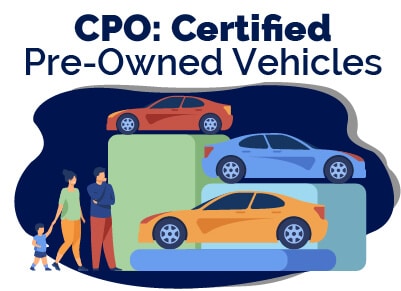

I am a serial entrepreneur and a consumer advocate. When I’m not helping car buyers, I love working on ventures that have a positive impact.
I run a cause marketing agency and serve on the board of Vayu Global Health where we are disrupting the medical industry and preventing the needless deaths of mothers and babies during childbirth.
If you’ve ever started shopping for a new or used car, chances are you heard the term “Certified Pre-Owned.”
Compared to brand new cars, CPOs can save you a lot of money on a great quality vehicle. However, the included warranty, inspection, and repairs will cost you significantly more than a standard used car.
What exactly is a certified pre-owned vehicle and is it worth buying?
Which option is right for you? Buying a new car or a used car.
Table of Contents
What is a CPO Vehicle?
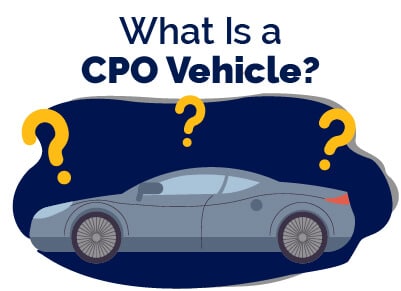 Certified pre-owned vehicles are used cars that are certified by the manufacturer. The manufacturer backs the certified pre-owned vehicle with a factory warranty. These vehicles are newer, generally around two to three years old. Additionally, they have low mileage, and many programs require fewer than 50,000 miles. Each manufacturer has unique CPO eligibility rules.
Certified pre-owned vehicles are used cars that are certified by the manufacturer. The manufacturer backs the certified pre-owned vehicle with a factory warranty. These vehicles are newer, generally around two to three years old. Additionally, they have low mileage, and many programs require fewer than 50,000 miles. Each manufacturer has unique CPO eligibility rules.
Franchised dealers sell CPO vehicles, only ones from their manufacturer. For example, a Honda dealer only sells Honda CPOs. The dealer certifies the CPO based on the manufacturer’s requirements. While the dealer handles the inspection and repairs, the CPO is fully backed by the manufacturer like a new car.
Professional technicians inspect CPOs on 100+ maintenance areas. Any major repairs will be handled before selling. Several top CPO programs also provide Carfax history reports to prove the vehicle history.
What Does a CPO Program Include?
Here’s what you can expect from a CPO program:
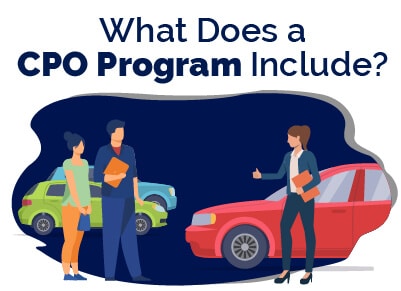 A vehicle in excellent condition with low mileage.
A vehicle in excellent condition with low mileage.- A vehicle history report.
- A limited powertrain warranty for the transmission, engine, and major mechanical components. Most of these warranties are extensions of the factory warranty, but the coverage may not be identical.
- A limited bumper-to-bumper warranty to cover other issues like infotainment, air conditioning, etc.
- Free roadside assistance (some programs).
- Complimentary scheduled maintenance (some programs).
- Special deals on subscriptions or maintenance (some programs)
What’s the Difference Between CPO and Used?
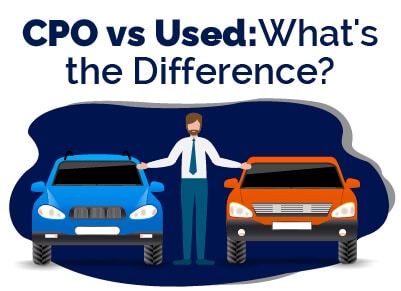 CPOs and used cars are both pre-owned, but the two are very different. For one, a CPO includes a full inspection as well as repairs prior to sale. Most used cars do not include this, and you, as the buyer, must pay for an inspection.
CPOs and used cars are both pre-owned, but the two are very different. For one, a CPO includes a full inspection as well as repairs prior to sale. Most used cars do not include this, and you, as the buyer, must pay for an inspection.
Additionally, CPOs include additional warranties (extended factory warranty and bumper-to-bumper warranty) that used cars do not. Many CPO programs also include a host of additional features, like roadside assistance, discounted maintenance services, and more.
CPOs have strict requirements, which means that most used cars do not qualify. Because of this, you can expect a CPO to have fewer miles, fewer years driven, and better warranties than used cars.
CPO Pros: Why You Should
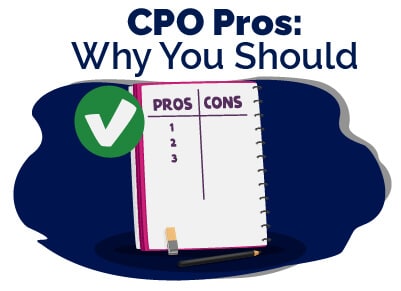 Peace of Mind. CPOs include a manufacturer-backed warranty which gives you peace of mind and reduces the risk of paying for expensive repairs.
Peace of Mind. CPOs include a manufacturer-backed warranty which gives you peace of mind and reduces the risk of paying for expensive repairs.- Cost. Less expensive than a new car.
- Current Options. Availability of current-production models since manufacturers produce vehicles for five to six years.
- Less Used. Lower miles compared to non-certified used cars.
- Inspected. A thorough inspection by factory-trained mechanics.
- Repaired. Necessary repairs performed before selling.
- Less Risk. Great risk mitigation compared to used vehicles.
CPO Cons: Why You Shouldn’t
Despite the many benefits of CPOs, there are also some cons, such as:
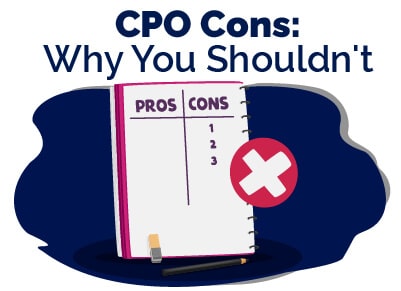 No Standardized CPO Program. The programs are very different among different manufacturers. Make sure to look for a manufacturer-backed warranty, not just a dealer-certified one.
No Standardized CPO Program. The programs are very different among different manufacturers. Make sure to look for a manufacturer-backed warranty, not just a dealer-certified one.- Required Maintenance. To meet the CPO warranty requirements, you must follow the manufacturer’s maintenance guidelines. Failing to do so often voids the warranty. Keep in mind that you'll have to have maintenance work done by a franchised or approved dealer.
- More Expensive Than Non-CPO Cars. Essentially, the CPO program provides insurance against breakdowns, and you pay for this type of “insurance”.
- Fewer Options. The requirements for certified pre-owned vehicles are very strict. This means fewer CPOs are available than used cars, and it can be difficult to find exactly what you want. If you’re flexible with color and options, this may not be as much of a challenge.
- The Fine Print. You cannot assume that every CPO warranty provides the same coverage. Read the fine print to know which components are covered and what was inspected.
How to Buy a CPO Car
To ensure you get the best deal and vehicle for your family, follow these guidelines when buying a CPO car:
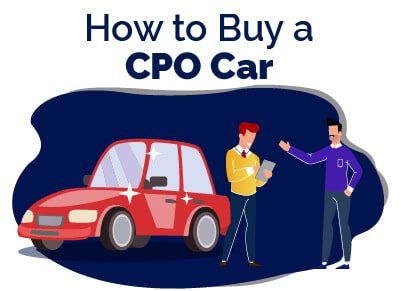 Search Dealerships for CPO Cars. First, you want to get an idea of what vehicles are available as CPOs. Check dealership websites and visit the dealerships to find the certified pre-owned vehicles available. As you look, keep your needs in mind to create a list of relevant CPOs available.
Search Dealerships for CPO Cars. First, you want to get an idea of what vehicles are available as CPOs. Check dealership websites and visit the dealerships to find the certified pre-owned vehicles available. As you look, keep your needs in mind to create a list of relevant CPOs available.- Understand the Warranty. Each manufacturer's CPO program is different. Be sure to find out the warranty coverage for different manufacturers. Find out when the coverage begins and ends, as well as exactly what is covered.
- Research CPO Pricing. CPOs are valued higher than other used cars because of their warranties, inspections, etc. Still, you want to ensure the price is fair. Use pricing guides like Kelley Blue Book and Edmunds to look up the CPO price for the cars you are looking at.
- Test Drive. Even though CPOs are inspected, they are not perfect. Make sure to take it for a test drive to ensure you like how it drives. During your test drive, keep an eye out for exterior and interior wear and tear.
- Review Insection Report and Vehicle History. Always ask for the inspection report and vehicle history report. Make sure everything is accurate and up-to-date.
- Negotiate the Best Deal. Just like used cars and new cars, CPO prices are not unchangeable. Look to negotiate for the best car price. For tips on negotiating the best car deal, check out this post.
What Are the Best CPO Programs?
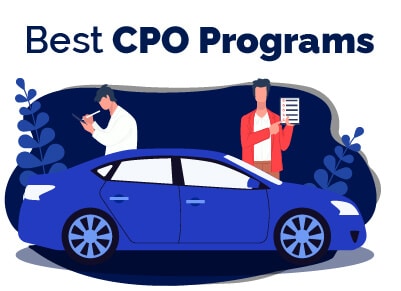 Most manufacturers have a CPO program. Here are some of the top programs to consider:
Most manufacturers have a CPO program. Here are some of the top programs to consider:
Lexus
Lexus is a great choice for luxury CPOs. With a Lexus CPO, you get:
- 161-point checklist inspection.
- 6 years of limited bumper-to-bumper coverage
- No mileage limit on the warranty
- Complimentary roadside assistance
- Free maintenance for up to four factory-recommended services (up to two years or 20,000 miles)
- Overall, many of the same benefits as someone purchasing a new Lexus.
Hyundai
Hyundai offers an excellent CPO program for extending the original warranty. Their program includes:
- Vehicles under 5 years old.
- 173-point quality assurance inspection.
- Balance of the original 60,000 mile/5-year warranty.
- 10-year/100,000-mile powertrain warranty beginning from original in-service date.
- Roadside assistance for 10 years
- Unlimited mileage and trip interruption/rental car reimbursement.
Ford
Ford’s CPO covers many additional components that many others do not. Here’s what their program entails:
- 7 year/100,000-mile powertrain warranty from the date of the new car purchase.
- 12-month/12,000-mile comprehensive limited warranty for transmission, engine, rear-wheel drive, stealing, brakes, AC, technology, emissions, audio system, and the safety system.
- $100 deductible for the covered repairs.
Is It Worth Buying a CPO Car?
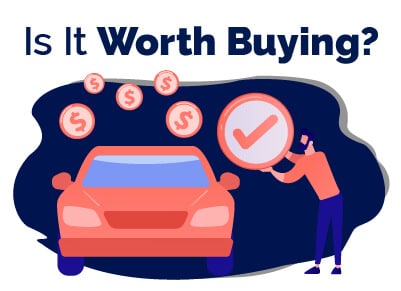 Certified pre-owned cars come with many benefits that make them a great alternative to brand new cars. Compared with other used cars, they give the buyer peace of mind. However, car buyers should carefully read the warranty requirements to determine if they are feasible for them. Additionally, you can find a great used car with the proper research. Check out our comparison of the top used car online platforms.
Certified pre-owned cars come with many benefits that make them a great alternative to brand new cars. Compared with other used cars, they give the buyer peace of mind. However, car buyers should carefully read the warranty requirements to determine if they are feasible for them. Additionally, you can find a great used car with the proper research. Check out our comparison of the top used car online platforms.
Ultimately, CPO cars can be worth buying, but they are not always. It’s crucial to carefully research all of your car buying options before deciding on a CPO.
Even though it's rare, it might be worth looking into leasing a used car.
Best Car Deals by Category
Frequently Asked Questions
Can you negotiate CPO cars?
Yes, just like with any car purchase, you can (and should) negotiate the price of a CPO car.
Should I buy new or certified pre-owned?
Buying a CPO can save you a lot compared to buying a new car. This option is ideal for models that have not changed much recently.
Should I buy used or certified pre-owned?
Compared to buying a used car, buying a CPO may not always be worth it. Another used car with the same mileage and year that’s not part of the CPO will be far less expensive. Furthermore, you are limited to cars within a few years old, which are more expensive than older vehicles. Paying for your own pre-purchase inspection can help save a lot of money on a used car.
Is CPO worth the extra money?
CPOs can be worth the additional cost compared to a used car, but they are not always. Make sure to research the CPO price on KBB and Edmunds to ensure you are getting the best deal. Additionally, consider alternative options like getting a used vehicle inspected prior to purchase or buying a separate warranty.
Why do CPO vehicles cost more?
CPO vehicles cost more than other used vehicles because they underwent an extensive inspection and necessary repairs prior to sale. They also meet the manufacturer’s strict requirements for age and mileage limits. Furthermore, CPO vehicles include extended warranties that used vehicles do not have.
Who has the best certified pre-owned program?
Most manufacturers have a certified pre-owned program. Some of the top programs to consider include:
- Lexus
- Hyundai
- Ford
- Kia
Posted in Car Buying Tips |




